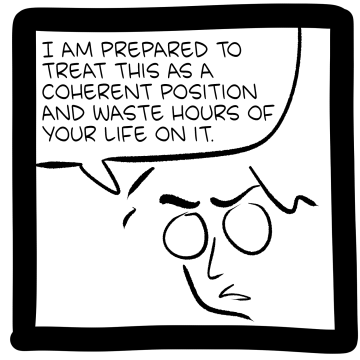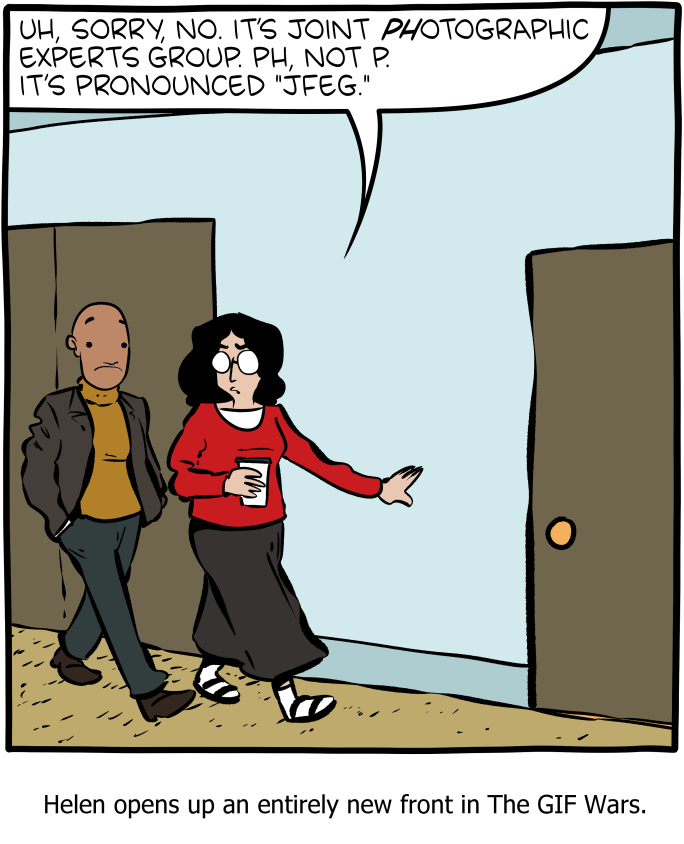this post was submitted on 27 Nov 2023
1855 points (98.0% liked)
Comic Strips
13607 readers
3211 users here now
Comic Strips is a community for those who love comic stories.
The rules are simple:
- The post can be a single image, an image gallery, or a link to a specific comic hosted on another site (the author's website, for instance).
- The comic must be a complete story.
- If it is an external link, it must be to a specific story, not to the root of the site.
- You may post comics from others or your own.
- If you are posting a comic of your own, a maximum of one per week is allowed (I know, your comics are great, but this rule helps avoid spam).
- The comic can be in any language, but if it's not in English, OP must include an English translation in the post's 'body' field (note: you don't need to select a specific language when posting a comic).
- Politeness.
- Adult content is not allowed. This community aims to be fun for people of all ages.
Web of links
- [email protected]: "I use Arch btw"
- [email protected]: memes (you don't say!)
founded 2 years ago
MODERATORS
you are viewing a single comment's thread
view the rest of the comments
view the rest of the comments


There is a small extra cognitive shift where the brain realizes those aren't typos or random letters and are intended to represent those words, so it does add an impediment to understanding. If it became common for people to write them as 'r' and 'u' then over time that would become correct.
Just like if it was common for people to pronounce "gif" one way and then someone came along and said "Well the creator wants it pronounced another way" the correct response is "who gives a fuck? This is how the word is used now." The 'creator' of the word "island" did not have an 's' in it, but no one is arguing for it to be spelled "eyland".
You re-read sentences much more often than you might suspect and it happens with all kinds of sentences, even grammatically correct ones. Garden-path sentences, for example "the old men the boat", are specifically crafted to demonstrate this and they essentially are doing the same thing as using 'r' and 'u' as a substitute for words: they violate the Gricean maxim of manner and that one relies a lot on expectation.
However, one could make a case that in some situations, like a "how r u" via text, the replacement is ubiquitous and somewhat expected and doesn't cause any impediment to understanding. It's definitely a hinderance when a more verbose communication is expected. Might be a neat subject for a phonetic study, honestly.